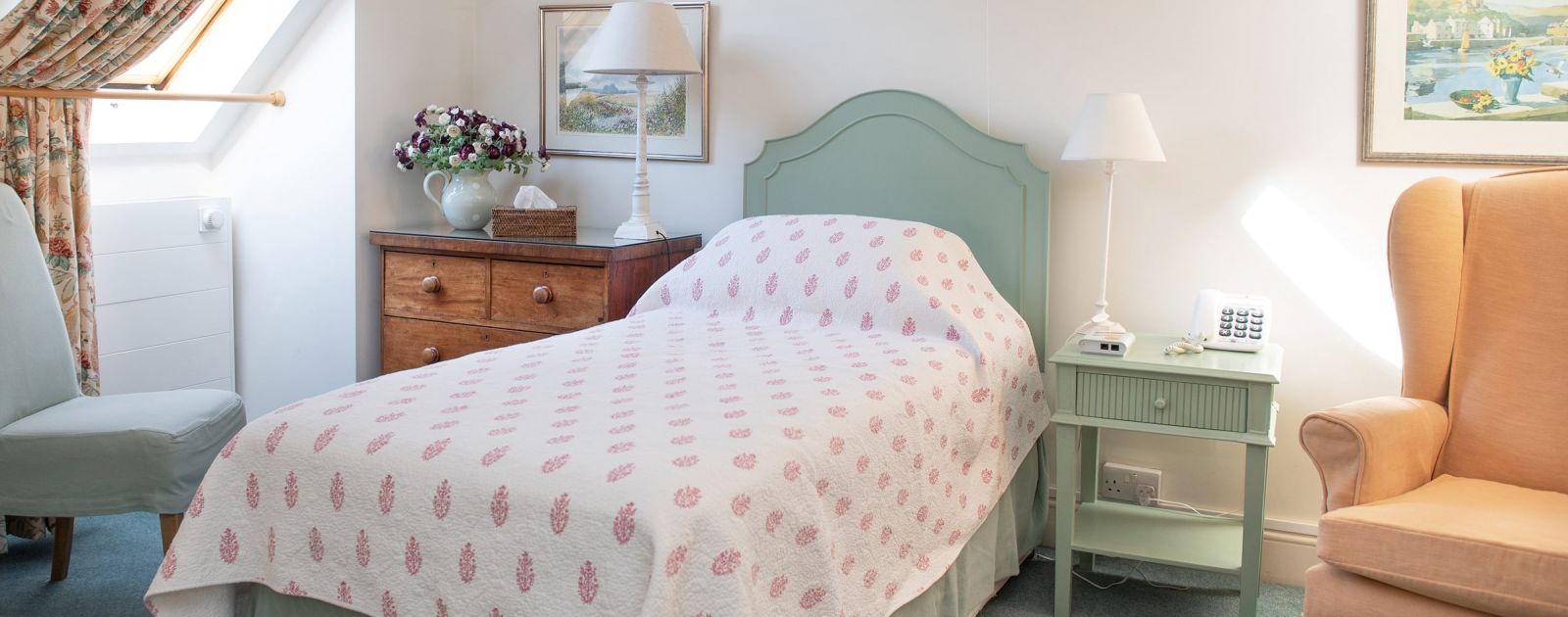
Supporting your loved one’s move to residential care
Author: Sara Stagg
Our recent article looked at the importance of taking care of a person’s mental health and wellbeing as well as the physical aspects. Given that moving home is widely recognised as one of the most stressful events you face in life, when your loved one moves into residential care it’s crucial to take steps that will ease the transition.
Creating a home from home
At The Dower House making sure our residents feel truly at home is of utmost importance. In fact, our residents often comment about how the home really does feel like their home.
Drawing on that experience, below are four fantastic ways to make your loved one’s nursing home room, feel like home.
Our rooms are tastefully decorated in a neutral, understated manner and for good reason. It makes it easy to personalise the room.
1) Familiar furnishings
Bringing treasured items of furniture or a favourite armchair instantly makes the room ‘yours’. The same applies to accessories like small ornaments, linens and blankets.
Move furniture around to create a layout that your loved one feels at ease with. A chair near the window, a stocked bookcase nearby and familiar throws on the bed will combine to make the room feel homely.
Hanging cherished photos or artwork on the walls does more than just make the room feel like home. Pictures are great for prompting memories of years gone by, help your loved one to feel connected to family and are a comforting presence.
2) The importance of pictures
Residents will often regale staff with stories triggered by the photos, paintings and artwork hung on the walls. In a moment a picture can transport your loved one to a momentous event in their life or provoke memories of people and places.
Flowers and plants are a natural way to enhance mood. Their colour and scent will brighten any space and, for those less mobile, it is a particularly useful way of remaining connected to nature.
3) Bring the outdoors in
From large floral displays in communal areas to pot plants or freshly cut flowers in rooms, there are many ways to enjoy nature indoors. Unsurprisingly some of the recognised psychological benefits of plants and flowers include reduced stress levels, improved concentration and the promotion of calm and relaxation.
There are lots of other, less overt ways, to evoke the feeling of home.
4) Evoking the feeling of home
The sense of smell has an immense power to trigger subtle emotional shifts. This means that a room fragrance in a favourite scent can make a place feel like home without anything else changing.
Creating memory boxes that your loved one can keep on hand to look through, either alone, with visitors or with staff, are a great idea. The process of making the memory box in preparation for the move to residential care can be a useful step in easing the transition.
Who hasn’t experienced the wonder of getting completely enthralled by a favourite book or film? Books, DVDs and even audio books are all wonderful options.
When settling your loved one into residential care, do remember that you can always ask for support from the nursing and care team. They are very experienced in helping residents adjust to the changes and will often be able to suggest solutions for anything causing you concern.
For more advice about moving to residential care, we have put together a guide packed with useful information and questions to ask when you are speaking to potential care homes.
< Back to all Blog posts
Enjoy a taste of life at The Dower House
Join us for a tour of the house to experience the welcoming, homely atmosphere. Book a visit now, we’d be delighted to welcome you.
